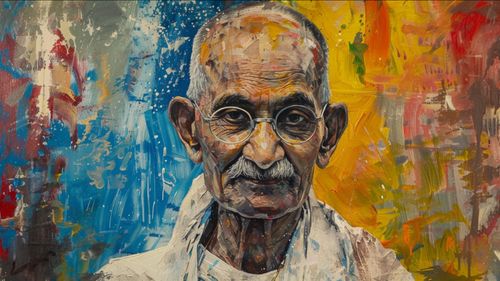Indigo summary: 10 Unexpected Lessons from Gandhi's Fight for Justice in Champaran
Feb 19, 2024 · 2 mins read
0
Share
Imagine Gandhi, a figure of peace, being mistaken for a peasant. This twist began a journey that would shake the British Empire. It's 1917, and a single, determined sharecropper, Rajkumar Shukla, convinces Gandhi to challenge the injustices in Champaran.
Save
Share
Gandhi's Champaran movement wasn't planned. It started with a persistent peasant's plea. This spontaneity turned into a historic fight against British landlords, showcasing Gandhi's adaptability and commitment to justice.
Save
Share
The refusal to let Gandhi draw water from a well, fearing pollution, highlights deep-rooted caste prejudices. Even in his quest for justice, Gandhi faced societal barriers, underscoring the complex fabric of Indian society.
Save
Share
Gandhi's approach in Champaran was revolutionary. He bypassed the courts, seeing them as ineffective for the fear-stricken peasants. This was a bold move, emphasizing direct action over legal battles.
Save
Share
The Champaran episode was a masterclass in civil disobedience. Gandhi's arrest and the subsequent mass support demonstrated the power of peaceful resistance and marked the beginning of a significant shift in Indian self-perception.
Save
Share
Gandhi's negotiation skills shone when he secured a 25% refund for the peasants from the landlords. This wasn't just about the money; it was a symbolic victory, breaking the landlords' aura of invincibility.
Save
Share
The Champaran movement was as much about social reform as it was about political struggle. Gandhi's establishment of schools and emphasis on health and sanitation in the villages laid the groundwork for a holistic approach to independence.
Save
Share
Gandhi's insistence on self-reliance, even refusing help from English pacifist Charles Freer Andrews, was a powerful statement. It wasn't just about winning a battle; it was about building a nation's confidence in its ability to self-govern.
Save
Share
The Champaran campaign's success wasn't just Gandhi's victory; it was a collective triumph. It taught the peasants courage and showed the British that their rule was not unchallengeable. This was a pivotal moment in India's struggle for independence.
Save
Share
Gandhi's journey in Champaran began with a simple request and ended with a profound impact. It wasn't just about indigo or sharecropping; it was a fight for dignity, justice, and self-reliance. Champaran was a testament to Gandhi's belief in the power of peaceful resistance.
Save
Share
0
